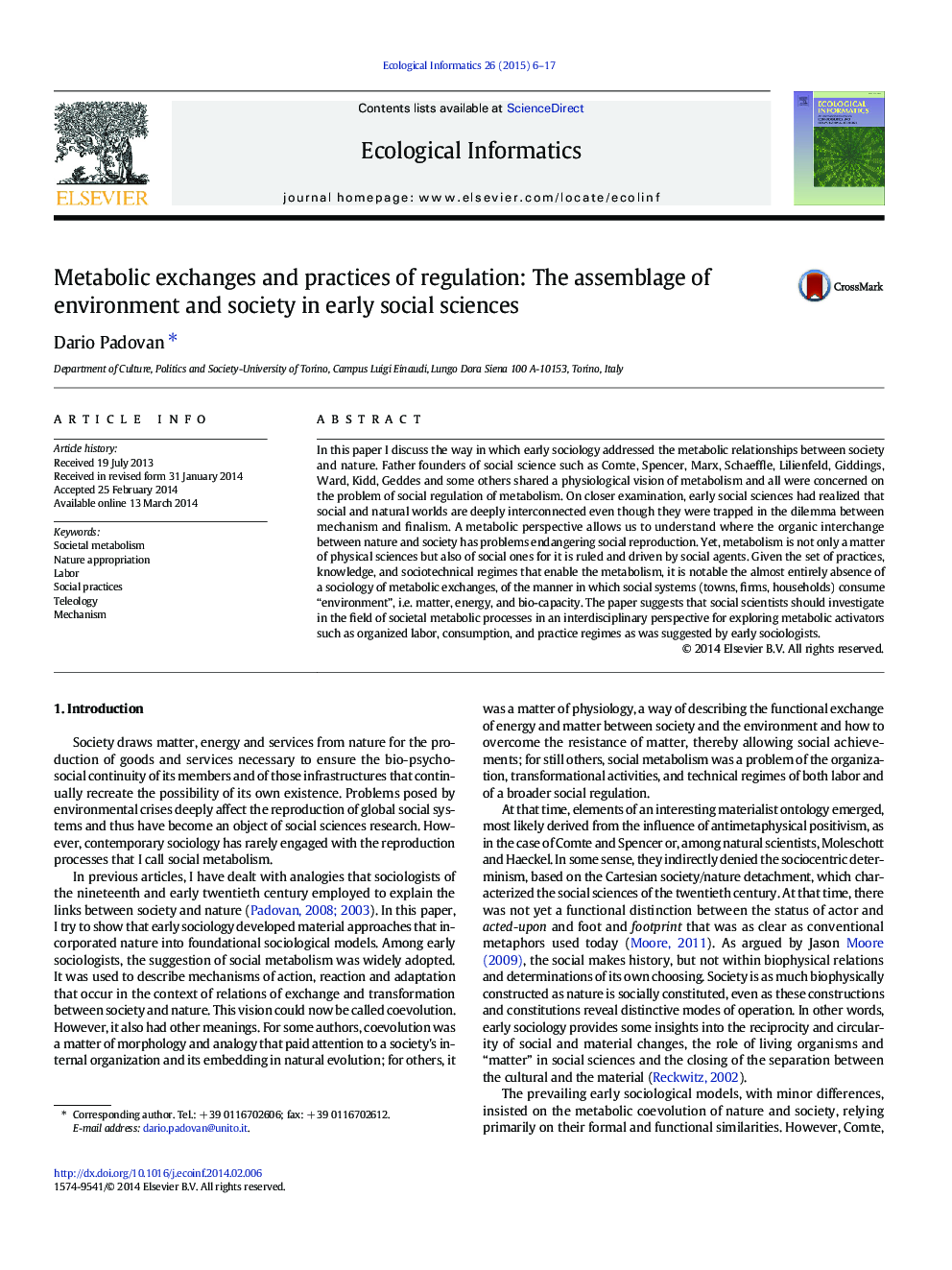| Article ID | Journal | Published Year | Pages | File Type |
|---|---|---|---|---|
| 4374851 | Ecological Informatics | 2015 | 12 Pages |
Abstract
In this paper I discuss the way in which early sociology addressed the metabolic relationships between society and nature. Father founders of social science such as Comte, Spencer, Marx, Schaeffle, Lilienfeld, Giddings, Ward, Kidd, Geddes and some others shared a physiological vision of metabolism and all were concerned on the problem of social regulation of metabolism. On closer examination, early social sciences had realized that social and natural worlds are deeply interconnected even though they were trapped in the dilemma between mechanism and finalism. A metabolic perspective allows us to understand where the organic interchange between nature and society has problems endangering social reproduction. Yet, metabolism is not only a matter of physical sciences but also of social ones for it is ruled and driven by social agents. Given the set of practices, knowledge, and sociotechnical regimes that enable the metabolism, it is notable the almost entirely absence of a sociology of metabolic exchanges, of the manner in which social systems (towns, firms, households) consume “environment”, i.e. matter, energy, and bio-capacity. The paper suggests that social scientists should investigate in the field of societal metabolic processes in an interdisciplinary perspective for exploring metabolic activators such as organized labor, consumption, and practice regimes as was suggested by early sociologists.
Related Topics
Life Sciences
Agricultural and Biological Sciences
Ecology, Evolution, Behavior and Systematics
Authors
Dario Padovan,
